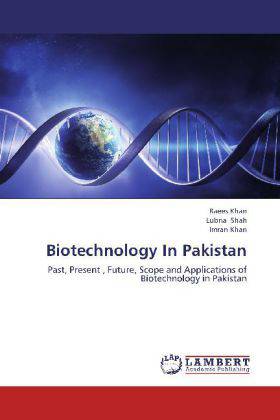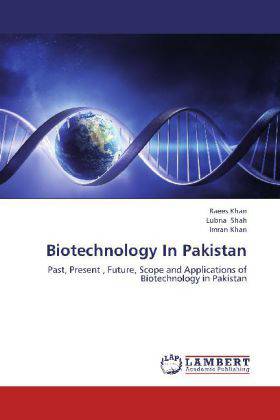
- Afhalen na 1 uur in een winkel met voorraad
- Gratis thuislevering in België vanaf € 30
- Ruim aanbod met 7 miljoen producten
- Afhalen na 1 uur in een winkel met voorraad
- Gratis thuislevering in België vanaf € 30
- Ruim aanbod met 7 miljoen producten
Zoeken
Biotechnology In Pakistan
Past, Present , Future, Scope and Applications of Biotechnology in Pakistan
Raees Khan, Lubna Shah, Imran Khan
Paperback | Engels
€ 58,45
+ 116 punten
Omschrijving
Use of modern biotechnology started in Pakistan since 1985. In a developing country like Pakistan Biotechnology would attain importance for producing more food and fiber as the country s population is going to touch the level of 335 million by 2050. By adopting this glorious scientific field Pakistan had already achieved the target of 12.7 million bales of cotton and is one of the largest exporters of cotton yarn in the world; almost 65% of Pakistan s annual export income. This book has entitled almost all fields of Biotechnology which this country currently has availed. Main focus is given to Agricultural biotechnology in Pakistan, Regulations, Research and Development of Biotechnology in Pakistan,Biofuel, Biodiesel and Biogas In Pakistan, Pakistan Biotechnology Information Centre (PABIC), Biotechnology and Food Security Challenges in Pakistan, GM Crops Development in Pakistan, Scope of Biotechnology in Pakistan and HEC Curriculum, Institutes of Biotechnology and Genetic Engineering in Pakistan, eminent pakistani biotechnologists and Regulatory Authorities for GM Plants And Animals In Pakistan.
Specificaties
Betrokkenen
- Auteur(s):
- Uitgeverij:
Inhoud
- Aantal bladzijden:
- 208
- Taal:
- Engels
Eigenschappen
- Productcode (EAN):
- 9783659243813
- Uitvoering:
- Paperback
- Afmetingen:
- 150 mm x 220 mm

Alleen bij Standaard Boekhandel
+ 116 punten op je klantenkaart van Standaard Boekhandel
Beoordelingen
We publiceren alleen reviews die voldoen aan de voorwaarden voor reviews. Bekijk onze voorwaarden voor reviews.











